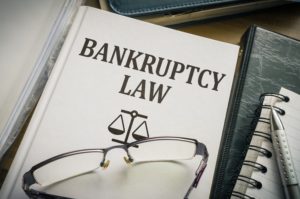 Section 362(k) of the Bankruptcy Code allows the award of damages for a stay violation only to “an individual injured by any willful violation of a stay.” This singular reference to “individuals” has given rise to a split among the courts with respect to whether trustees “individuals” for purposes of Section 362(k). Some courts have held that a Chapter 7 Trustee is an “individual”. See, In re M&J Feedmill, Inc., 112 B.R. 985, 989 (Bankr.W.D.Mo.1990); In re Bair Island Marine and Office Ctr., 116 B.R. 180. 185, n.2 (Bankr.C.D.Cal.1990); In re Fugazy Express, Inc., 124 B.R. 426, 431 (S.D.N.Y.1991); and Martino v. First Nat’l Bank of Harvey (In re Garofalo’s Finer Foods, Inc.), 186 B.R. 414, 439 (N.D.Ill.1995) (holding that the trustee is an “individual” under Section 362(h)).
Section 362(k) of the Bankruptcy Code allows the award of damages for a stay violation only to “an individual injured by any willful violation of a stay.” This singular reference to “individuals” has given rise to a split among the courts with respect to whether trustees “individuals” for purposes of Section 362(k). Some courts have held that a Chapter 7 Trustee is an “individual”. See, In re M&J Feedmill, Inc., 112 B.R. 985, 989 (Bankr.W.D.Mo.1990); In re Bair Island Marine and Office Ctr., 116 B.R. 180. 185, n.2 (Bankr.C.D.Cal.1990); In re Fugazy Express, Inc., 124 B.R. 426, 431 (S.D.N.Y.1991); and Martino v. First Nat’l Bank of Harvey (In re Garofalo’s Finer Foods, Inc.), 186 B.R. 414, 439 (N.D.Ill.1995) (holding that the trustee is an “individual” under Section 362(h)).
Other courts have held that a trustee is not an individual under Section 362(k). See, e.g., In re Just Brakes Corp. Sys., 175 B.R. 288, 291-92 (Bankr.E.D.Mo.1994); and Paloian v. Grupo Serla S.A. de C.V., 433 B.R. 19, 41 (N.D.Ill.2010) (holding that the trustee is not an “individual” under former Section 362(h)). In re O’Malley, 601 B.R. 629 (Bankr.N.D.Ill.2019), has followed this latter line of decisions. The court came to this conclusion by analyzing the modifications made to former Section 362(h) when it was recodified as Section 362(k). It noted that Former Section 362(h) stated that “[a]n individual injured by any willful violation of a stay provided by this section shall recover actual damages, including costs and attorneys’ fees, and, in appropriate circumstances, may recover punitive damages.” Current Section 362(k) adopted in paragraph (1) the language of former Section 362(h) above and then added a second paragraph as follows:
(2) If such violation [of a stay] is based on an action taken by an entity in the good faith belief that subsection (h) applies to the debtor, the recovery under paragraph (1) of this subsection against such entity shall be limited to actual damages.
Id. at 659.
The O’Malley court explained that the Bankruptcy Code defines the term “entity,” as used in Section 362(k)(2), to include “person, estate, trust, governmental unit, and United States trustee.” The Bankruptcy Code defines “person,” as including individuals, partnerships, and corporations. Based on these definitions, the court concluded that “entity” and “person” are more inclusive than “individual.” Thus, in enacting Section 362(k), Congress kept the restrictive term “individual” in §362(k)(1) but added the more inclusive term “entity” in Section 362(k)(2). This fact strongly suggests that Congress “’was aware of the distinction between the terms and deliberately chose to retain” the more narrow term “individual” in the new §362(k)(1) to refer to a human being or natural person rather than a legal “entity.’” Id. at 659 quoting Gecker v. Gierczyk (In re Glenn), 379 B.R. 760, 763-64 (Bankr.N.D.Ill.2007).
Finally, the court noted that a trustee is not an “individual” for purposes of Section 362(k). The court explained that as the representative of the bankruptcy estate, the trustee cannot suffer any damages as an “individual.” Rather, any damages incurred, such as costs and attorneys’ fees, are incurred by the bankruptcy estate. Id. at 659.
Matthew T. Gensburg
[email protected]

